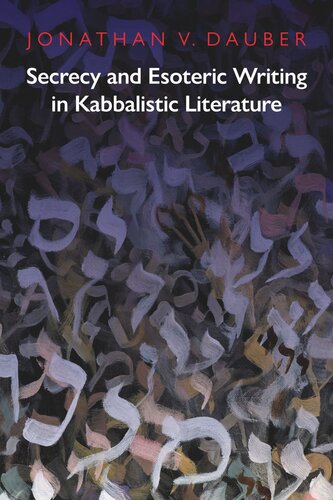

Most ebook files are in PDF format, so you can easily read them using various software such as Foxit Reader or directly on the Google Chrome browser.
Some ebook files are released by publishers in other formats such as .awz, .mobi, .epub, .fb2, etc. You may need to install specific software to read these formats on mobile/PC, such as Calibre.
Please read the tutorial at this link: https://ebookbell.com/faq
We offer FREE conversion to the popular formats you request; however, this may take some time. Therefore, right after payment, please email us, and we will try to provide the service as quickly as possible.
For some exceptional file formats or broken links (if any), please refrain from opening any disputes. Instead, email us first, and we will try to assist within a maximum of 6 hours.
EbookBell Team

4.4
102 reviewsJonathan V. Dauber examines the strategies of esoteric writing that Kabbalists have used to conceal secrets in their writings, such that casual readers will only understand the surface meaning of their texts while those with greater insight will grasp the internal meaning.
Secrecy and Esoteric Writing in Kabbalistic Literature examines the strategies of esoteric writing that Kabbalists have used to conceal secrets in their writings, such that casual readers will only understand the surface meaning of their texts while those with greater insight will grasp the internal meaning. In addition to a broad description of esoteric writing throughout the long literary history of Kabbalah, this work analyzes kabbalistic secrecy in light of contemporary theories of secrecy. It also presents case studies of esoteric writing in the work of four of the first kabbalistic authors—Abraham ben David, Isaac the Blind, Ezra ben Solomon, and Asher ben David—and thereby helps recast our understanding of the earliest stages of kabbalistic literary history.
The book will interest scholars in Jewish mysticism and Jewish philosophy, as well as those working in medieval Jewish history. Throughout, Jonathan V. Dauber has endeavored to write an accessible work that does not require extensive prior knowledge of kabbalistic thought. Accordingly, it finds points of contact between scholars of various religious traditions.